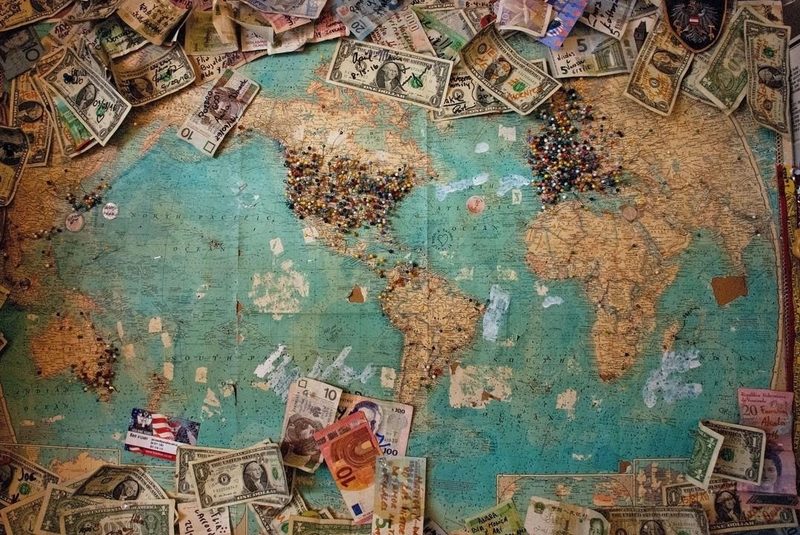
Apr 23, 2019
What If Executives Stood in Line to Pay Bills?
I encourage executive leaders of energy companies, municipalities, mayors and other essential billers to walk just one day in the shoes of their most challenged customers – the unbanked.
How easy is it for an unbanked customer to pay bills at your organization?
In thinking about this challenge, I remembered the apocryphal story of when General Motors Chairman Roger Smith was doing due-diligence on acquiring EDS.
Reportedly, Smith was in Dallas meeting with EDS CEO Ross Perot, and they had lunch in the regular employee lunch room – not the Executive Dining Room.
“Gee Ross, the food is pretty darn good in your employee cafeteria,” Smith reportedly said.
“Roger, if you ate in your employee cafeteria, I bet the food would be good there too.”
Maybe today’s major billers would better serve their customers by standing in line to make a payment. I guarantee it will be a real awakening to a reality that most have not considered – the challenge of paying bills without credit cards or checking accounts – and there is a substantial sector of our economy who are in this category.
The Exorbitant Cost of Banking Outside Financial Institutions
This burden is crushing for those who can least afford it. According to a study by The Wharton School of Business, check cashing services, for example, will cost an average individual with a full-time job up to $40,000 over his or her lifetime, and there are, of course, many more fees.
A customer who wants to pay their electric bill in cash must go to a retailer offering the service and then pay a fee of $3 to $5 for each bill, and the payment posts in 24 to 48 hours. A customer who may be getting their power shut off that day can pay another $7 to $10 for expedited posting.
Providing the nation’s underserved with affordable access to the traditional financial system makes sense for society because it allows people to break the cycle of poverty by enabling them to build credit. The Wharton study points out entities already working to bridge the gap, “but these efforts are not nearly enough to excuse the private sector from its responsibility to promote economic inclusion in our community.”
The Digital Divide Strikes the Underserved
A significant challenge for the underserved in paying their bills quickly, efficiently and on time is lack of access to the internet. According to the 2016 Federal Commissions Commission (FCC) Broadband Progress Report, 34 million Americans lack access to fixed broadband. The Pew Research Center reports 53 percent of adults with income lower than $30,000 access broadband at home compared 93 percent of adults who earn more than $75,000 per year.
Pew also found that about three-in-ten adults with household incomes of under $30,000 don’t own a smartphone. One-fifth of adults in lower-income households are “smartphone-only” internet users meaning they rely on phones to go online.
The Community Arm of the Federal Reserve of Kansas City is one group that’s launched an initiative to bridge the so-called “Digital Divide. Called Connecting for Good, the Kansas City Fed wants to bridge the “employment, education and opportunity gap between those with easy access to broadband services and those with little or no access” in a society where online access is increasingly required to get a job, get an education and access essential financial services.
But there is still so much work ahead to ensure all Americans have access to the technology that will allow them to pay bills quickly, efficiently and at no cost.
One city making progress on bridging this gap is Detroit, Michigan where DivDat Kiosk Network has installed state of the art kiosks in 65 safe, reliable locations to pay property taxes, court fees, utility bills and more.
DivDat developed this technology – which also includes access to a mobile app — to enable everyone to pay their bills on time, for free, using whatever methods work best for them — including cash — and to build credit for paying on time.
DivDat Kiosk Network is the industry standard in free and convenient self-serve bill payment services for the underserved and underbanked. Kiosks are located in communities where people need them most, which eliminates the expense and time to travel to multiple locations to pay bills in person.
DivDat acts as a bridge between taxing authorities, the court system, and utility companies and the segment of their customer base challenged with making monthly payments on time. DivDat empowers underserved customers, many with no internet access, with the tools to pay in their neighborhoods, at their convenience with a method they prefer, and, most importantly, with dignity.
For more information about DivDat Kiosks, visit the DivDat website or call us at 1-800-356-8561.

